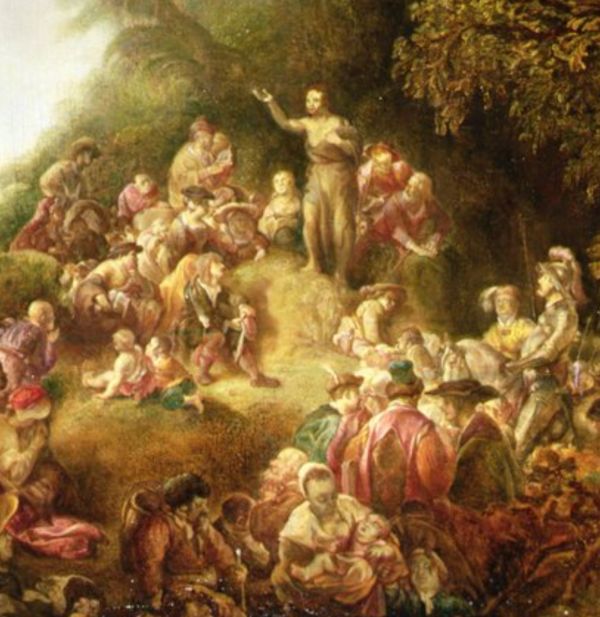In listening to what the Baptist said to the crowds, it almost seems as if the Poor Man of Assisi ended up following him to the letter.
John exhorted: "He who has two tunics let him give to him who has none" (Lk 3:11).
Francis, renewed in heart by the baptism of fire he received, in his day played ahead - and still offers us a solid evangelical paradigm to refer to.
Like the Precursor, he placed Poverty at the top, of the heart and of things.
In the Sources we read: 'He went to visit, with religious devotion, the tomb of the Apostle Peter.
It was on this occasion that, seeing the great multitude of beggars before the doors of that church,
moved by a gentle compassion and, at the same time, allured by a love of poverty, he gave his clothes to the neediest of them
and covered himself with his rags, he spent the whole day among the poor, with unusual joy of spirit" (Sources 1037).
Chiara echoed him:
"O blessed poverty! To those who love you and embrace you bring eternal riches.
O holy poverty! To those who possess and desire you, God promises the kingdom of heaven, and infallibly offers eternal glory and blessed life.
O pious poverty! Thee the Lord Jesus Christ [...] deigned to embrace in preference to all else" (FF 2864 - Letter First to Agnes of Prague)
"Loving him, you are chaste; touching him, you become more pure; welcoming him into you, you are a virgin;
his power is stronger, his bounty higher, his appearance more beautiful, his love more gentle, and every grace finer.Already you are clasped by his embraces, whom your bosom has adorned with precious stones, and in your ears he has placed priceless pearls,
and hath clothed you with springy and coruscating gems, and hath crowned you with a crown of gold expressed with the sign of holiness.
Therefore, dearest sister, or rather lady extraordinarily worthy of all veneration, because you are the bride and mother and sister of my Lord Jesus Christ,
most splendidly adorned with the banner of inviolable virginity and of most holy poverty, be strengthened in the holy service, begun with ardent desire, of the poor Crucified One, who for us all bore the passion of the cross, snatching us from the power of the prince of darkness, in whom by the transgression of the first kinsman we were bound, and reconciling us with God the Father Almighty.
In listening to what the Baptist said to the crowds, it almost seems as if the Poor Man of Assisi defines himself to follow the Gospel to the letter.
John, a witness to the Light, to those who asked him who he was replied:
"I the voice of one crying out in the wilderness. Straighten the way of the Lord" (John 1:23).
In a world seeking to have, to appear, to possess and to dominate, the Poor of Assisi testify to the honesty of living according to God, returning every perfect gift to Him!
"What then shall we do?" (Luke 3:10)
3rd Sunday in Advent (C) (Lk 3:10-18)












